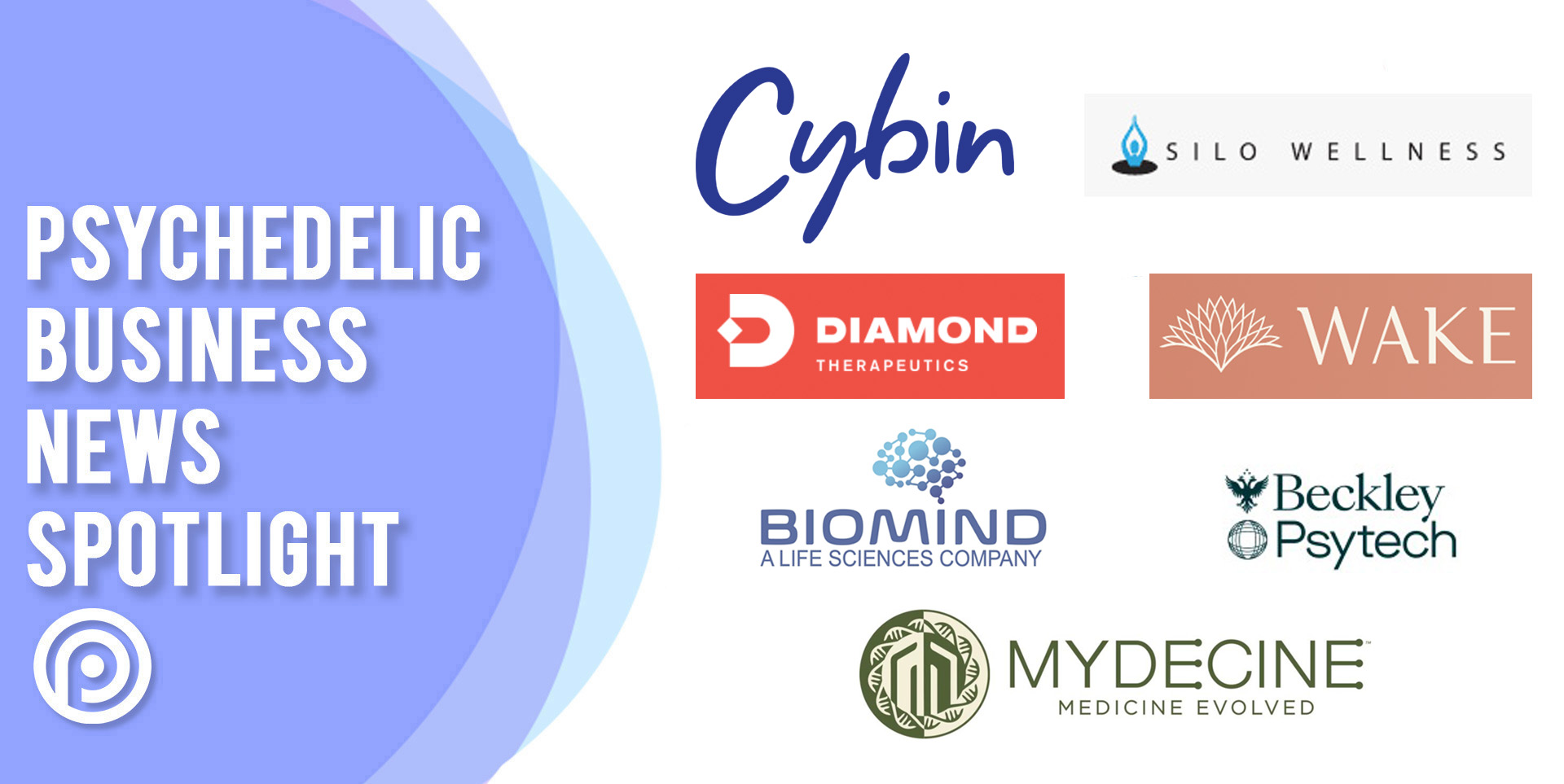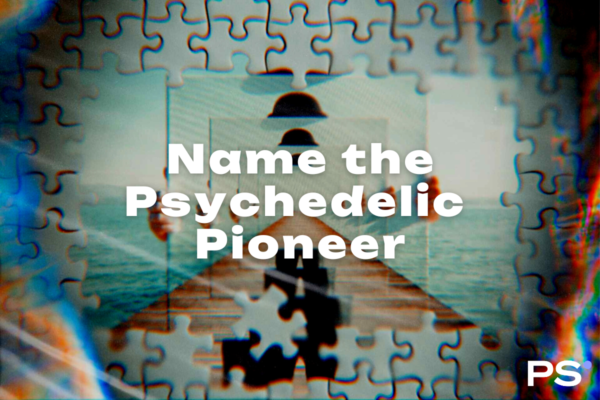
Fundraising
This week in psychedelic business news, Beckley Psytech has successfully completed an oversubscribed Series B financing, raising $80 million from venture capital investors to fund its research programs. The Series B financing was initially set at $50 million and was upsized to $80 million.
Beckley Psytech will use the proceeds to complete a Phase 1b trial using low-dose psilocybin to treat patients suffering from short-lasting unilateral neuralgiform headache attacks, or SUNHA, a rare and debilitating headache condition.
Funds will also be used to initiate a Phase 1 dose-ranging study on a novel formulation of intranasal 5-MeO-DMT ahead of a Phase 2 trial for treatment-resistant depression. The money will also support the expansion of the company’s pipeline with new proprietary psychedelic compounds.
Distribution
Silo Wellness Inc., inked a $3 million national distribution agreement with Texas-based distribution and advertising company One Light Enterprises LLC for Silo Wellness’ portfolio of Marley One-brand mushroom products across 47 U.S. states. The announcement follows Silo Wellness’ U.K distribution agreement with LocoSoco PLC, for the mushroom brand created in collaboration with the family of legendary musician Bob Marley.
Silo Wellness also intends to launch a psychedelic mushroom product line under the Marley name later this year as well as additional functional mushroom products including gummies, capsules, and cosmetics.
Patents
Cybin Inc. filed two additional international patent applications expanding its potential to obtain patent coverage in 153 countries for each of the patent applications. Under the Patent Cooperation Treaty (PCT), Cybin is granted the right to file future national applications to treaty member jurisdictions including potential markets.
Cybin anticipates its newer applications will further strengthen its CYB005 program, which focuses on therapy-resistant psychiatric disorders. The company’s current indications include major depressive disorder (CYB001), alcohol use disorder (CYB003) and anxiety disorders (CYB004). Additionally, two programs currently in the research phase (CYB005 and CYB006) are involved synthesis and testing of more than 50 novel compounds coupled with extensive in-vitro and in-vivo pharmacokinetic, receptor binding, behavioral and safety evaluations.
Clinical Research
On the clinical side of psychedelic business news, Wake Network Inc.’s subsidiary MagicBio Research Inc., received an exemption from Health Canada to conduct laboratory research on the biosynthesis process of psilocybin and psilocin genetically engineered microorganisms at its Collingwood, Ontario, facility.
MagicBio is developing technology and making scientific discoveries related to the biosynthesis of psilocybin and psilocin from natural sources, while using a microbial host similar to ones that are commonly used in pharmaceutical production. The company anticipates this technology will enable it to develop additional revenue streams beyond its current biomass cultivation activities, by creating pharmaceutical-grade products that are naturally sourced.
“As the benefits of psychedelic compounds become more well known, Wake remains committed to a natural-first approach to the creation of these amazing compounds for people in need,” says Nick Murray, Wake’s chief executive officer.
The Brazilian Institutional Review Board approved Biomind Labs’ Phase 2 clinical trial investigating N,N-dimethyltryptamine (DMT) for treatment-resistant depression. DMT is the psychoactive ingredient in the Amazonian brew ayahuasca.
According to a recent randomized placebo-controlled trial in patients with treatment-resistant depression conducted by Biomind Lab’s Neuroscientist Dr. Draulio Barros de Araujo, and published in Psychological Medicine, ayahuasca is safe and has a rapid antidepressant effect.
“This clinical trial is the first and the only completed randomized placebo-controlled trial to test a psychedelic substance in treatment-resistant depression. The results of this trial were crucial for Biomind Labs to be able to advance with an isolated form of DMT,” says Alejandro Antalich, CEO of Biomind Labs. The phase 2 clinical trial will include 40 individuals and will be conducted in Brazil.
Diamond Therapeutics Inc., received a “No Objection Letter” from Health Canada to proceed with a Phase 1 human clinical trial to evaluate the safety and pharmacokinetics of low doses of psilocybin in up to 80 healthy volunteers.
Diamond also plans to launch a Phase 2 trial to investigate low doses of psilocybin in treating anxiety in both Canada and the U.S., as well as support an investigator-led study of low-dose psilocybin in the U.S. to explore its effects on patients with moderate depression.
“We’re very excited to commence our clinical program. It brings us one step closer to creating therapeutics that can help more people access effective and safe treatments for mental health conditions,” says Judy Blumstock, CEO of Diamond.
Mydecine Innovations Group signed a five-year research agreement with Johns Hopkins University School of Medicine’s Behavioral Parmacology Research Unit, which has extensive experience conducting clinical research into therapeutic uses of psychedelic medicine. The agreement allows Johns Hopkins University and Mydecine to further their research on novel psychedelic therapies to treat mental health and addiction disorders.
“The long-term potential of this research agreement is captivating for us here at Mydecine,” Mydecine’s Chief Scientific Officer and Co-Founder, Rob Roscow, says. “It demonstrates our commitment to advancing psychedelic medicine by exploring multiple molecules and medicines for a variety of indications.”





![Psychedelic Capital Conference – How to Watch FREE [ I Just Made the BIG LEAGUES]](https://psychedelicspotlight.com/wp-content/uploads/2022/06/maxresdefault-130-600x338.jpeg)